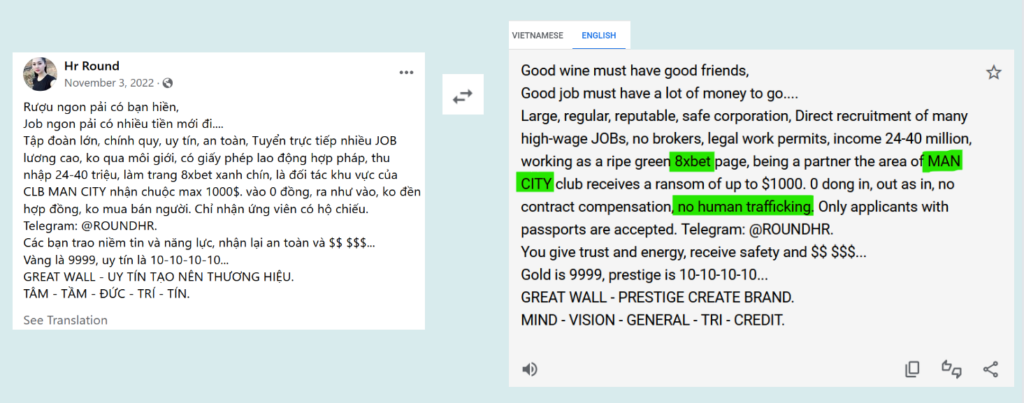A company promising work with Manchester City’s betting partner is offering great pay, safe work and “no human trafficking”.
By Jack Kerr and Philippe Auclair

So advertises an eye-catching job post from November, auto-translated from Vietnamese, one of dozens on social media trying to entice passport holders across the Cambodian border to work with 8XBet.
Anyone who has followed the Premier League might be familiar with the 8xBet brand: its logo has been beamed around the world thanks to a regional partnership with Manchester City, which has given it prime advertising space at home games.
Readers of Josimar will know the name too. Our September investigation lifted the hood on the secretive bookmaker and found substantial links to a Dubai-based marketing firm.
This has led some to accuse 8XBet of being a "ghost" sponsor – a fictitious entity created for the sole purpose of inflating the club's commercial revenues.
But could 8XBet’s real story involve something else altogether, like the human trafficking that one recruiter felt compelled to distance the company from?
Half-a-million s...



